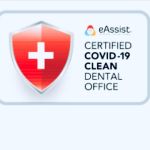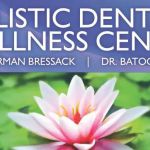Essential Preventive Dental Care Tips for Healthy Teeth and Gums
- Why Preventive Dental Care is Important
- Key Steps in Preventive Dental Care
- Common Dental Problems Prevented by Regular Care
- How to Maintain a Healthy Smile
- The Role of Regular Dental Checkups
Why Preventive Dental Care is Important
Preventive dental care is the cornerstone of good oral health. Taking proactive steps to care for your teeth and gums can save you time, money, and discomfort by preventing common dental issues such as cavities, gum disease, and tooth loss. The goal of preventive dental care is to avoid serious oral health problems before they require expensive treatments or cause long-term damage.
By focusing on prevention, you not only protect your smile but also enhance your overall health. Oral hygiene problems can contribute to other health issues, including heart disease and diabetes. Maintaining good oral hygiene prevents the buildup of plaque, bacteria, and tartar, which could lead to more severe conditions.
Key Steps in Preventive Dental Care
Effective preventive care goes beyond just brushing and flossing. To ensure long-lasting oral health, follow these key steps:
- Brush Your Teeth Twice a Day: Brushing your teeth with fluoride toothpaste at least twice daily is essential to remove food particles and plaque, reducing the risk of cavities and gum disease.
- Floss Daily: Flossing helps remove debris and plaque from areas between your teeth that your toothbrush can't reach. Make it a habit to floss daily for cleaner teeth and healthier gums.
- Use Mouthwash: An antimicrobial mouthwash can help reduce bacteria in your mouth, freshen breath, and promote overall oral health.
- Eat a Balanced Diet: A healthy diet that is low in sugary foods and drinks can help prevent cavities and gum disease. Foods rich in calcium and vitamin C, such as dairy products and fruits, are great for your teeth and gums.
Common Dental Problems Prevented by Regular Care
Preventive dental care can help you avoid a variety of common but serious dental issues. Regular care protects against:
- Cavities: Regular brushing and flossing help eliminate plaque buildup that leads to tooth decay. Without proper care, cavities can develop, requiring fillings or more invasive treatments.
- Gum Disease: Gum disease, which can lead to tooth loss, begins with inflammation of the gums due to plaque buildup. Flossing and regular checkups help prevent this condition from progressing.
- Bad Breath: Poor oral hygiene is a leading cause of halitosis (bad breath). Brushing your teeth, tongue, and using mouthwash regularly can help keep your breath fresh.
- Tooth Sensitivity: Gum recession and enamel erosion, often caused by poor hygiene, can lead to tooth sensitivity. Preventive care minimizes the risk of these problems.
How to Maintain a Healthy Smile
In addition to the basic preventive steps, here are some lifestyle habits that can help maintain a healthy smile:
- Quit Smoking: Smoking is a major contributor to gum disease and tooth loss. It also stains teeth and can cause bad breath. Quitting smoking greatly improves your oral health.
- Wear a Mouthguard: If you play contact sports, wearing a mouthguard can protect your teeth from injury.
- Stay Hydrated: Drinking water helps rinse food particles and bacteria from your mouth, promoting healthy saliva production, which is essential for neutralizing acids and protecting teeth.
The Role of Regular Dental Checkups
Even with excellent at-home oral care, regular dental checkups are crucial for maintaining optimal oral health. Here's why:
- Early Detection of Problems: Dentists can spot early signs of cavities, gum disease, or other issues that might go unnoticed. Early intervention often leads to easier and more affordable treatment.
- Professional Cleanings: Regular cleanings by a dentist or hygienist remove hardened plaque (tartar) that brushing and flossing cannot eliminate, reducing the risk of gum disease and cavities.
- Personalized Advice: Based on your specific needs, your dentist can offer tailored advice to improve your oral hygiene habits and ensure your long-term oral health.
Ready to take your oral health to the next level? Discover more preventive dental care tips and schedule your next appointment with Dentistry Toothtruth to keep your smile bright and healthy!


 Serenity Dental Care4.0 (246 review)
Serenity Dental Care4.0 (246 review) West Lakes Dentistry - Chaska4.0 (238 review)
West Lakes Dentistry - Chaska4.0 (238 review) HOLISTIC DENTAL AND WELLNESS CENTER3.0 (8 review)
HOLISTIC DENTAL AND WELLNESS CENTER3.0 (8 review) Elegant Dentistry, Brett Sperry DMD5.0 (3 review)
Elegant Dentistry, Brett Sperry DMD5.0 (3 review) PERFECT SMILES DENTAL / Nguyen Katherine T DMD, FAGD5.0 (3 review)
PERFECT SMILES DENTAL / Nguyen Katherine T DMD, FAGD5.0 (3 review) Coast Dental4.0 (545 review)
Coast Dental4.0 (545 review) The Importance of Oral Health Education During Pregnancy for a Healthy Pregnancy
The Importance of Oral Health Education During Pregnancy for a Healthy Pregnancy Best Tips for Brushing Your Teeth Properly for Healthy Gums: Essential Techniques for Oral Health
Best Tips for Brushing Your Teeth Properly for Healthy Gums: Essential Techniques for Oral Health Why Skipping Dental Checkups Can Lead to Bigger Oral Health Problems
Why Skipping Dental Checkups Can Lead to Bigger Oral Health Problems Advantages of Porcelain Dental Restorations
Advantages of Porcelain Dental Restorations How Can Diabetes Cause Tooth and Gum Problems? Preventing and Managing Oral Health Issues
How Can Diabetes Cause Tooth and Gum Problems? Preventing and Managing Oral Health Issues Healthy Habits for Promoting Good Oral Health and Hygiene: Tips for a Healthy Smile
Healthy Habits for Promoting Good Oral Health and Hygiene: Tips for a Healthy Smile